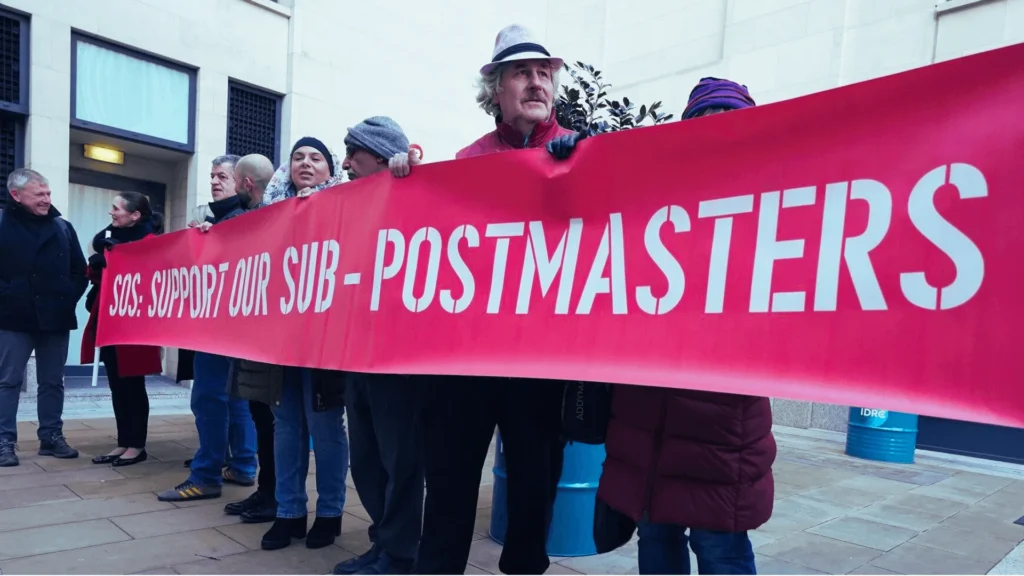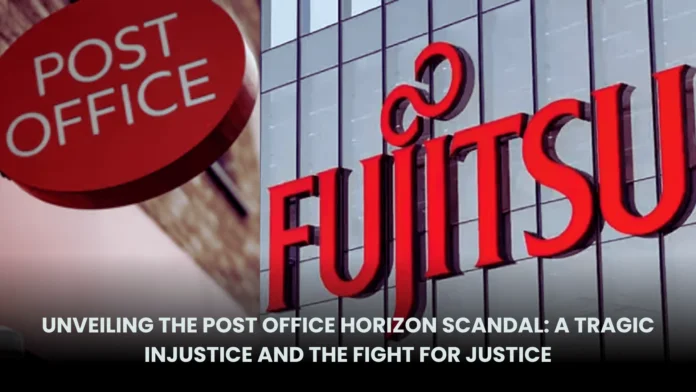Post Office Horizon Scandal: A Miscarriage of Justice That Shook the UK
Imagine dedicating your life to running a small post office, serving your community with pride, only to be accused of theft due to a computer glitch. Your reputation is shattered, your finances are drained, and your mental health crumbles under the weight of false accusations. This isn’t a hypothetical scenario—it’s the heart-wrenching reality faced by nearly 1,000 sub-postmasters in the UK due to the Post Office Horizon scandal. This catastrophic miscarriage of justice, driven by a faulty IT system, led to wrongful convictions, financial ruin, and, tragically, loss of life. What is being done to make amends, and how did this happen?
The Post Office Horizon scandal, spanning from 1999 to 2015, is one of the darkest chapters in UK legal history. A defective software system, Horizon, developed by Fujitsu, falsely reported financial shortfalls in post office branches, leading to the wrongful prosecution of hundreds of innocent sub-postmasters. The consequences were devastating: bankruptcies, imprisonment, broken families, and, in at least 13 cases, suicides linked to the unbearable pressure of being falsely accused. This article dives deep into the scandal, exploring its origins, human toll, the fight for justice, and the ongoing efforts to compensate victims.
What Was the Post Office Horizon Scandal?
The Faulty Horizon System: A Ticking Time Bomb
In 1999, the UK Post Office, a state-owned entity operating as a private business, rolled out the Horizon IT system across its 11,500 branches to automate accounting and stocktaking processes. Developed by Japanese tech giant Fujitsu, Horizon was meant to streamline operations. Instead, it became a nightmare for sub-postmasters—small business owners who run local post offices under contract with the Post Office.
The system, riddled with bugs and errors, falsely reported shortfalls in branch accounts, sometimes amounting to thousands of pounds. Rather than investigating these discrepancies, the Post Office assumed the sub-postmasters were at fault, accusing them of theft, fraud, or false accounting. Between 1999 and 2015, approximately 1,000 sub-postmasters were prosecuted based on this flawed data, with many facing imprisonment, financial ruin, or social ostracism. The human cost was staggering, with families torn apart and lives lost to the stress of wrongful accusations.
A Culture of Denial and Deception
Shockingly, evidence suggests that some senior Post Office employees either knew or should have known about Horizon’s flaws. Sir Wyn Williams, the retired judge chairing the public inquiry into the scandal, stated in his July 2025 report that the Post Office “maintained the fiction that its data was always accurate” despite known issues with the system. This refusal to acknowledge the software’s defects led to a systemic failure, where innocent people were punished for errors they didn’t commit.
The inquiry revealed that Fujitsu, too, was aware of the system’s shortcomings as early as 1999, with a “known error log” documenting 29 bugs that caused false accounting records. Yet, this critical information was not disclosed in court, leading to convictions based on unreliable evidence. The failure to act on these known issues raises serious questions about accountability and corporate responsibility.
The Human Toll: Lives Destroyed by False Accusations
A Tragic Loss of Life
The human impact of the Horizon scandal is nothing short of heartbreaking. Sir Wyn Williams’ report, published on July 8, 2025, revealed that at least 13 individuals took their own lives due to the unbearable stress of being wrongfully accused. Another 59 contemplated suicide, and thousands more suffered severe financial hardship, mental health crises, and social isolation.
Consider the case of Jo Hamilton, a prominent advocate for justice and a former sub-postmistress. Accused of theft due to Horizon’s errors, she faced financial ruin and public humiliation. “The report shows the full scale of the horror they unleashed on us,” Hamilton said, reflecting on the years of pain endured by victims. Her story is just one of many, with sub-postmasters like Lee Castleton, who was bankrupted after being ordered to pay a non-existent £25,000 shortfall, suffering immense personal and financial losses.
Beyond Convictions: A Ripple Effect of Suffering
While around 1,000 sub-postmasters were prosecuted, thousands more were held responsible for illusory shortfalls without facing criminal charges. Many used their personal savings to cover these deficits, fearing termination of their contracts or legal action. The ripple effects were profound: marriages collapsed, health deteriorated, and communities turned against those accused. Some victims, like 92-year-old Betty Brown, the oldest surviving victim, spoke of the pain caused by “the lies they told,” highlighting the betrayal felt by those who trusted the Post Office.
The inquiry’s findings underscore the scale of suffering. Over 200 witness statements detailed severe hardship, with some victims losing their homes, battling serious illnesses, or facing bankruptcy. The tragedy was exacerbated, according to the report, by the substantial emotional and financial losses experienced by the relatives of the impacted sub-postmasters.
The Fight for Justice: A Long Road to Redemption
The Turning Point: A TV Drama Sparks Outrage
For years, the Post Office Horizon scandal simmered beneath the surface, with sub-postmasters like Alan Bates, now knighted for his advocacy, tirelessly campaigning for justice. In a historic High Court action against the Post Office in 2017, Bates led a group of 555 sub-postmasters. The 2019 ruling was a game-changer, declaring the sub-postmasters’ contracts unfair and confirming that Horizon “contained bugs, errors, and defects.” The case settled for £58 million, though legal fees left claimants with just £12 million.
Despite this victory, the scandal didn’t gain widespread attention until January 2024, when the ITV docudrama Mr Bates vs. The Post Office brought the issue to national prominence. The series galvanized public support, prompting swift government action to address the miscarriages of justice. The drama’s impact was profound, leading to legislation in 2024 to quash convictions and establish compensation schemes.

The Public Inquiry: Seeking Truth and Accountability
In response to mounting pressure, the government launched a public inquiry in 2020, which was upgraded to a statutory inquiry in 2021 under Sir Wyn Williams. The inquiry, which concluded in December 2024, has been pivotal in uncovering the truth. It has examined the implementation and failings of the Horizon system, the Post Office’s actions, and Fujitsu’s role. Key revelations include:
- Post Office Knowledge of Flaws: Senior employees knew or should have known about Horizon’s errors but continued prosecutions.
- Fujitsu’s Admissions: Paul Patterson, Fujitsu’s Europe director, admitted in 2023 that the system had “bugs, errors, and defects” from the start, calling it “shameful” that this wasn’t disclosed in court.
- Compensation Delays: The inquiry criticized the Post Office’s “unnecessarily adversarial” approach to compensation, which depressed settlement amounts and delayed redress.
The inquiry’s first report, released in July 2025, focused on the human impact and compensation, making 19 urgent recommendations, including free legal advice for victims and compensation for family members. A second report, expected later, will address accountability and potentially assign blame.
Compensation: A Slow and Painful Process
The Scale of Redress
As of June 2025, over £1.039 billion has been awarded to more than 7,300 sub-postmasters across four compensation schemes. These include:
- Horizon Convictions Redress Scheme (HCRS): For those whose convictions were quashed, offering £600,000 fixed settlements or full claim assessments. By March 2025, 339 had accepted the fixed sum.
- Horizon Shortfall Scheme (HSS): For sub-postmasters who faced financial losses but weren’t convicted, offering £75,000 fixed settlements or full assessments.
- Group Litigation Order (GLO) Scheme: For the 555 sub-postmasters who took the Post Office to court in 2017.
- Capture Scheme: Addressing issues with an earlier system, used by over 1,000 sub-postmasters in the 1990s, which may have led to additional wrongful convictions.
Despite these efforts, progress has been criticized as slow. The Public Accounts Committee reported in June 2025 that only 21% of 18,500 letters sent to potential claimants under the HSS had received responses, and over 3,000 claims remain unresolved. Victims like Janet Walters, whose husband Terry died days before receiving a compensation offer, described the process as an “utter disgrace.”
Fujitsu’s Role in Compensation
Fujitsu, the developer of Horizon, has faced intense scrutiny for its role. While the company has acknowledged a “moral obligation” to contribute to compensation, it has yet to pay a single penny, prompting outrage from campaigners like Lord Arbuthnot. Paul Patterson of Fujitsu agreed to start discussions on helping with redress when Business Secretary Jonathan Reynolds met with him in Japan in March 2025. However, the government has emphasized that the inquiry’s final findings will determine the scale of Fujitsu’s financial responsibility.
The Ongoing Use of Horizon: A Lingering Concern
Despite its catastrophic failures, the Horizon system remains in use across Post Office branches as of 2025, though the organization claims to have made improvements. Nigel Railton, Post Office chairman, stated in July 2025 that the organization plans to transition to a new system within two to three years, moving away from Fujitsu. However, the complexity of replacing a system across 11,500 branches has delayed progress. A 2024 YouGov survey commissioned by the inquiry found that 70% of sub-postmasters still reported “unexplained discrepancies” with Horizon since 2020, raising concerns about its reliability.
Issues with intellectual property prevent the Post Office from abandoning Horizon sooner. Fujitsu owns the system’s code, limiting the Post Office’s ability to inspect or replace it. A failed attempt to switch to an IBM system in 2016 cost £40 million, and a 2023 contract extension with Fujitsu added £107 million to the bill, highlighting the financial and logistical challenges.
Lessons Learned and the Path Forward
Restorative Justice: A Call for Healing
Sir Wyn Williams’ report emphasizes the need for restorative justice, urging the government, Post Office, and Fujitsu to collaborate on programs like counseling and bursaries for victims by October 31, 2025. This approach aims to bring together those harmed and those responsible to discuss the impact and make amends. The inquiry’s recommendations also include systemic changes to prevent future miscarriages of justice, such as reviewing rules on computer evidence in court.
A Broader Impact on Trust and Technology
The Horizon scandal has sparked a broader conversation about trust in technology and corporate accountability. The Post Office’s reliance on flawed software, coupled with its failure to heed sub-postmasters’ warnings, underscores the dangers of blind faith in automated systems. The inquiry’s findings have prompted calls for stricter oversight of mission-critical software, especially in public institutions. As Mio Kato of LightStream Research noted, Fujitsu’s reputational damage could have long-term consequences, particularly given its role in supplying critical systems to government agencies.
The Role of Advocacy and Media
The tireless advocacy of figures like Alan Bates, coupled with media coverage from journalists like Nick Wallis, who has reported on the scandal since 2008, played a crucial role in bringing the issue to light. Wallis’ work, including his book The Great Post Office Scandal and contributions to BBC Panorama, helped amplify victims’ voices. The ITV docudrama was a turning point, proving the power of storytelling in driving policy change and public awareness.
How You Can Support the Victims
The Post Office Horizon scandal is a stark reminder of the human cost of institutional failure. If you’re moved by the victims’ stories, consider supporting organizations like the Horizon Scandal Fund, a registered charity providing small grants to affected sub-postmasters. Sharing this article or engaging with campaigns on social media can also raise awareness and pressure authorities to expedite compensation and accountability.
Conclusion: A Fight Far from Over
The Post Office Horizon scandal is a tragic tale of technology gone wrong, institutional arrogance, and lives destroyed. While the inquiry’s first report has shed light on the scale of suffering, the fight for full justice continues. With over 10,000 claimants seeking compensation and ongoing investigations into Fujitsu and Post Office personnel, the road to redemption is long. Yet, the resilience of sub-postmasters like Jo Hamilton and Alan Bates offers hope that truth and accountability will prevail.


